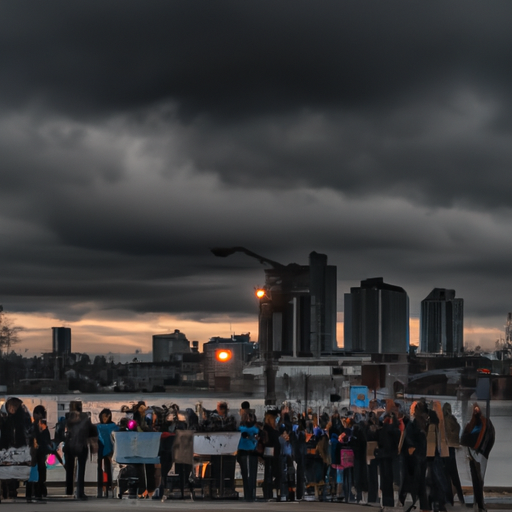Canadian Opioid Crisis: Community Perspectives and Multi-faceted Solutions
As the Fort Frances Times presents, the combined wrath of opioids and an outbreak of homelessness has resulted in a perfect storm, wreaking havoc across Canadian cities. A painstaking exploration of these two interlinked crises reveals the dire need for comprehensive and timely solutions.
The Harrowing Reality of the Opioid Crisis
The opioid crisis is a broad spectrum issue, confronting all demographic, socioeconomic and geographic divisions within the community. It is a severe public health crisis, characterized by the disturbing increase in overdose cases, fuelled by opioids, with fentanyl at the epicenter.
The detrimental effects of this crisis extend far beyond individual health implications. It is responsible for escalating crime rates, the proliferation of used needles in public spaces, and an increasing demand on emergency services. Moreover, it further fuels the existing crisis of homelessness, creating a vicious cycle requiring more than just an easy fix.
The Relationship Between Opioids, Homelessness and Crime
The relationship between opioid use, homelessness, and crime can be challenging to disentangle. It is clear that these issues often reinforce and escalate one another. The opioid crisis exacerbates the problem of homelessness, which in turn contributes to increasing crime rates. Meanwhile, these rising crime rates place more pressure on law enforcement agencies and emergency services.
Addressing the Opioid Crisis: Community Efforts and Government Initiatives
Addressing the opioid crisis involves implementing comprehensive, multi-faceted solutions on various levels – from individuals and families through to community organizations and government bodies.
- Community members have adopted a proactive approach, with local groups organizing neighbourhood cleanups and advocating for more substantial governmental action towards the opioid crisis.
- Non-profit organizations provide critical resources and services to at-risk populations, including housing, food, and skills training.
- The Canadian government, in response to the escalating crisis, has committed to increasing the availability and accessibility of naloxone, a medication designed to rapidly reverse opioid overdose.
- Furthermore, the Ontario government has initiated a Canadian opioid abatement class action to hold pharmaceutical companies accountable for their roles in the opioid crisis. This multi-billion dollar lawsuit seeks to recover government healthcare costs related to opioid misuse, fundamentally a taxpayers’ issue.
An Urgent Call to Action
While these measures constitute a significant step forward, more needs to be done in addressing the opioid crisis head-on. The current situation calls for a more aggressive approach involving pervasive education efforts, stringent pharmaceutical regulations, mental health support, homeless outreach programs, and a more robust healthcare system.
Addressing the Crisis: Key Takeaways
Despite the numerous challenges posed by the opioid crisis, it is crucial for community and civic leaders to remain hopeful. Using a collective, multi-disciplinary approach, we can craft solutions that offer immediate support to those affected, while simultaneously working on long-term preventative measures.
The fight against the opioid crisis in Canada must involve:
- Strengthened regulations and oversight for pharmaceutical companies.
- Increased availability of naloxone and training for its use.
- Aggressive fraud detection and enforcement within the healthcare and pharmaceutical sectors.
- A focus on mental health initiatives, homeless outreach, and rehabilitation services.
- Continual community engagement and advocacy.
In conclusion, the Canadian opioid crisis, deeply intertwined with issues of homelessness and crime, is alarming. It not only harms people grappling with substance misuse but drives up crime rates and places an unprecedented strain on emergency services. We need to take an all-hands-on-deck approach, from comprehensive educational programs to collaborative community and government efforts like the Ontario-backed opioid class action lawsuit. We must strive for a society where opioids are a tool for health, not a trigger for crisis.
